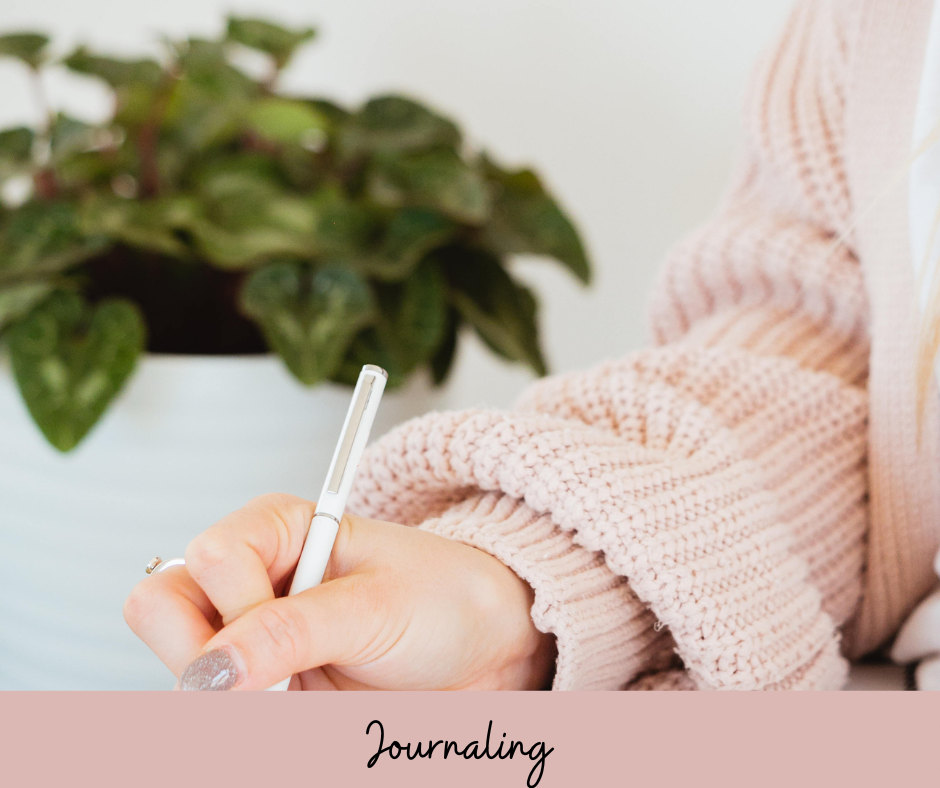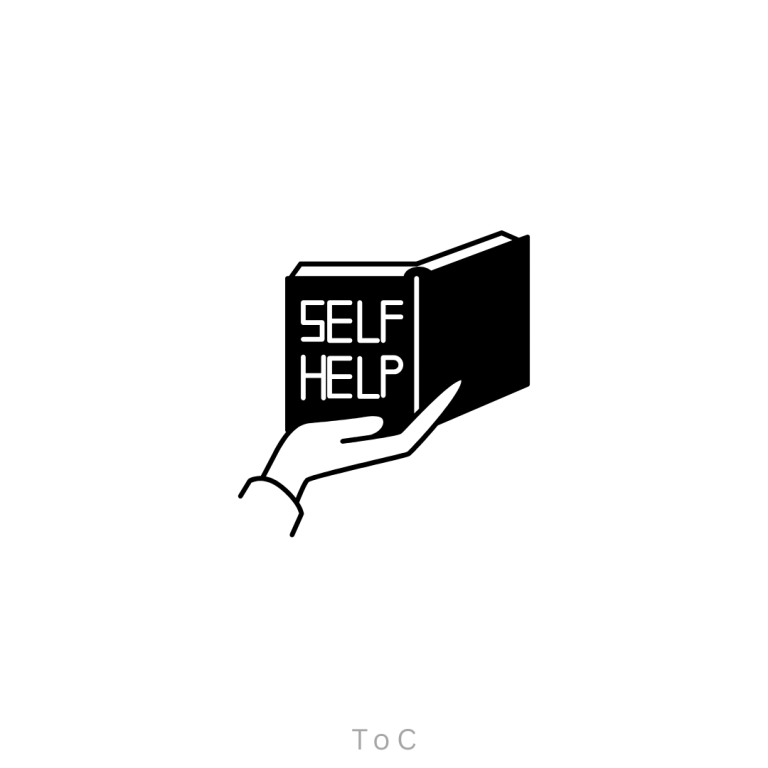How To Start A Journal: The Ultimate Guide
Wondering how to start a journal? And what would happen if you suddenly decided to start journaling every day?
In 2024, I started a personal journey of changing my mindset. I tested many short, simple habits that you can introduce to start your day with positive thoughts.
And journaling is one of them.
For November and December, I started a simple habit of 5-minute journaling every morning.
As I sit at my desk with a cup of coffee in the morning, I open a notebook that is already there and write down a couple of sentences.
I write down 3 things I am grateful for and 2-3 main goals for the day. Just that. A couple of minutes’ worth of time.
During the day, I also use my journal to write down my ideas, thoughts, problems, or future plans.
I also use a planner to organize my life. It is a very simple, daily planner where I put a couple of things I want to get done every morning: a project I need to deliver, or a blog post I need to write.
How to start a journal: Find your why
The way you journal will depend on what you expect to get from it.
So sit down and ask yourself the following two questions right now, and write down the answers:
- “Why do I want to start a journal?”
- “What do I hope to get out of it?”
If your goal is to get new ideas for work, then brain dump journaling or morning pages may work the best. If you are journaling to create a more positive mindset, then gratitude journaling is for you. Maybe you want a place where you can express your creative side and also be more organized? Bullet journal is your answer.
Benefits of Journaling
As I sit down and start writing about things in my life I am grateful for, I inevitably start thinking about the positive aspects of my life. And often we do not realize that we already have the most valuable, most incredible things. We always focus on what we don’t have.
Every morning, I think about the previous day and remember new things to be grateful for. One morning, I am grateful for my neighbor who came over for a cup of coffee, and the next for the sunny day.
This micro habit has had a profound effect on the way I start my day and the way I feel. I also tried writing down affirmations.
I find them very helpful as well.
The way you think sets the tone for the rest of your day. If you start the day complaining about the weather or food, and you start focusing right away on tiny things that go wrong, you start to feel grumpy and dissatisfied.
Here are a couple of benefits of journaling:
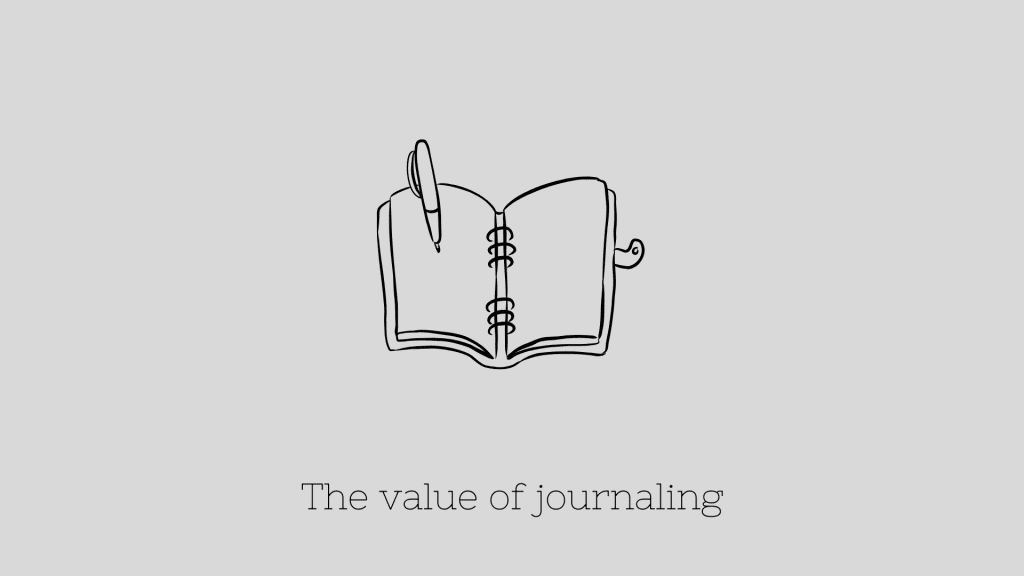
Journaling reduces stress and anxiety
Putting your thoughts on paper helps you release some of the anxiety or sadness you feel. It is like telling someone about your problems. Your thoughts and worries are finally out of your head.
Journaling boosts creative thinking and inspiration
Daily writing inevitably improves your writing style and makes your mind work harder to come up with expressions and words that can better describe what you feel.
It is a creative process with high benefits in the long run.
Journaling helps you solve problems
When you put a problem on paper, you can better see it and understand it. Your brain processes it differently and may also come up with solutions that you haven’t thought about before.
Journaling keeps you organized and productive
When I am consistent with journaling, I stay on top of my life. All my projects are delivered on time, groceries are bought on time, and all meetings are completed.
Journaling enables you to track your goals
Journaling about your goals helps you clarify what you want and encourages you to consider the why and how, not just the what. Reflecting on goals in writing continually reminds you to take the next action necessary to achieve them. I can clearly see where I need to work more. What goals I am persistently failing? I cannot ignore the results. They stare me right in the face!
Journaling increases clarity and focus
We live in a distracted world. You will soon realize that the habit of journaling improves your focus throughout the day and helps you keep a clear mind.
How to start a journal: Journaling Prompts
When I do not know what to write about, I find journaling prompts very useful. They give me ideas and topics I can write about and prevent me from staring at a blank page.
Here are a couple of examples:
- Today, I am feeling
- I am grateful for
- Today, I am proud of
- I am looking forward to
Another great idea for journaling is to sit down and write your own life story. Where did you start? What struggles did you go through? What did you achieve? List all your successes and all your failures.
What interests and hobbies helped you succeed?
Write about your ideal future and lifestyle in detail. As you write your life story, several things can happen. You can gain a clearer view of your life. You can see your successes and your failures. Perhaps your story can help others. It can be a great basis for a new business or a blog.
As you describe your ideal future you can also clearly asses if you are close to it.
If you need more ideas for your new journal, check out my post: What to Write in a Journal: 50 Prompt Ideas
How to start a journal
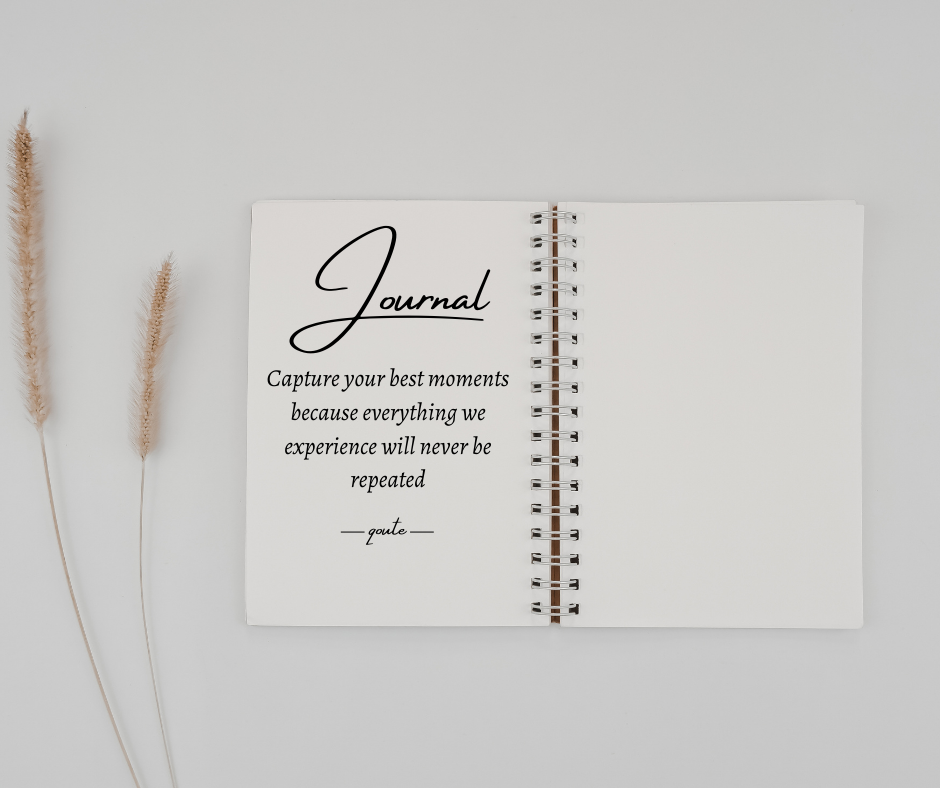
I always think it is better to start small.
Pick a notebook and consider what you want to write about.
Place it somewhere where you will see it, and it will remind you to use it. Stack the habit of journaling with some other habit you really enjoy, like having a cup of coffee in the morning.
Start small, you do not need to write 3 pages every day, just write 3 sentences. And progress from there.
The rules of journaling
Well, there are none. Do not bother making your journal perfect; just let your thoughts flow freely and ignore grammar or spelling errors.
The journal is just for you, not for other people. It does not have to be perfect or Pinterest-worthy.
It is a safe place for you to write down all your thoughts and feelings.
I guess the only rule of journaling should be to be honest.
Types of Journals
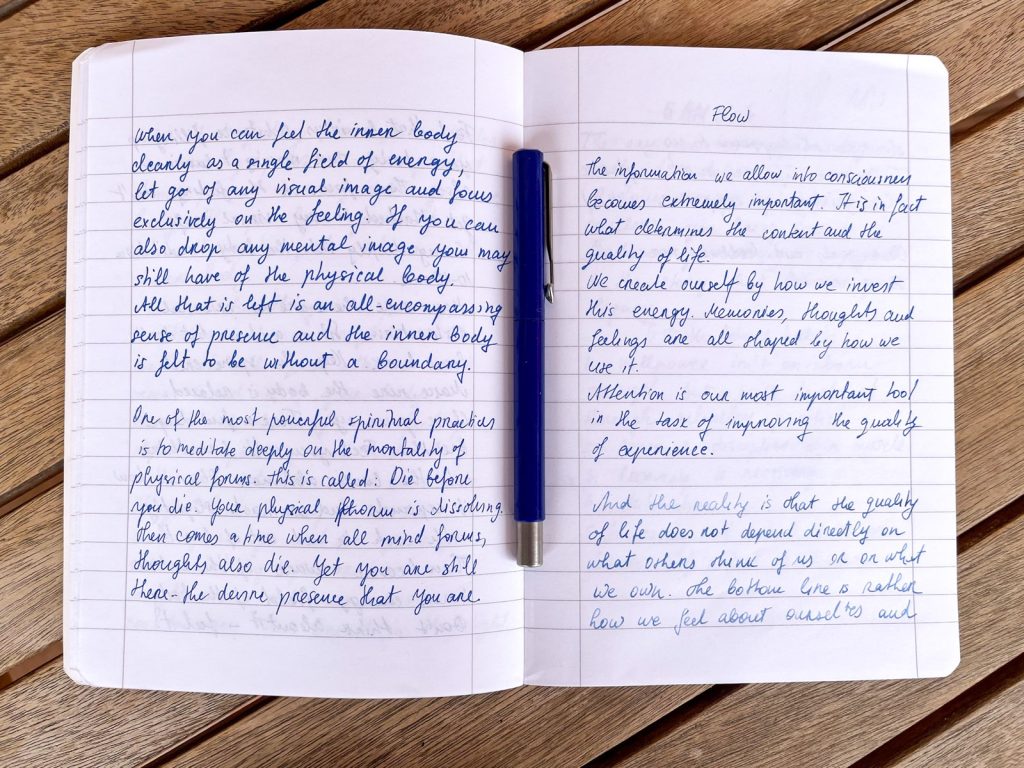
There are a lot of different types of journals you can use. But please note that your journal can be a mix of several types and completely unique.
You can both draw and write. You can use it just as a simple Diary, and also add Planner pages.
- The Bullet Journal: The system organizes scheduling, reminders, to-do lists, brainstorming, and other organizational tasks into a single notebook. You create the ideal journal yourself by selecting what you want to have in it. Some people make it very pretty, but that is not obligatory.
- The Morning Pages: The writing exercise known as Morning Pages involves filling three sides of paper with words, stream of consciousness-style, first thing every day. I plan to start doing this this year, and I will post about my experience when I try it out for at least a couple of months.
- The Gratitude Journal: Regularly documenting things you are grateful for. According to research, people who do that regularly experience heightened optimism and greater progress toward goals.
- The Reading Journal: Start writing down key takeaways from the books you read. You can write down important ideas and your thoughts you can go through them later when you want to refresh your memory.
- The Art Journal: It is a visual diary where you practice making art while expressing yourself at the same time. You can doodle, practice calligraphy, drawing, painting, and art techniques.
- The Guided Journal: A guided journal, also known as a prompt journal, is designed with a specific purpose, instead of writing about whatever comes to mind.
- Diary: The oldest form of journaling, writing down the events, thoughts, and feelings. You can write whenever you have inspiration or make small entries daily.
- Journaling for brainstorming: Write down all your ideas and concepts. Just pour all your thoughts into your journal, whatever comes to your mind. This type of journaling aims to capture thoughts and ideas that you would otherwise forget and lose.
What you need to start a journal
There are many different ways to start a journal. I prefer to buy a simple, empty notebook. I can use it as a journal, for note-taking, and for ideas. At the moment, I have 3 different types of notebooks on my desk.
I use one to write down my morning gratitude sentences, another to write down ideas from books I am reading, and a third one to track my habits, write down my tasks for the day, and goals.
You can also buy a guided journal. This is perhaps ideal for beginners when you are still not sure about what you want to write about.
The guided journal will have prompts that will help you fill it out.
However, once you start journaling regularly, I believe that everyone will benefit from using an empty notebook.
Final thoughts
Once you discover how good journaling is for your mental well-being, you won’t want to stop. It won’t be a task you have to do on a daily basis, it’ll become something you look forward to doing and something you’ll benefit from hugely.
Regular journaling can help you destress and clarify your thoughts and feelings.
Keeping a journal can help nurture your creativity, too. Writing about your experiences not only helps you process them, but it can also help you figure them out and, potentially, spot new opportunities.
While you may be overwhelmed when you see all the beautiful journals in your Instagram or Pinterest feed, you do not need to have the same beautiful journal to reap the benefits of journaling. You do not need fancy doodles, stickers, or markers.
All you really need is an empty notebook and a pen.

Related Posts
Journaling: How to write morning pages
How To Start A Gratitude Journal
How to start a reading journal
The Transformative Power of Writing: Why Everyone Should Write Every Day
